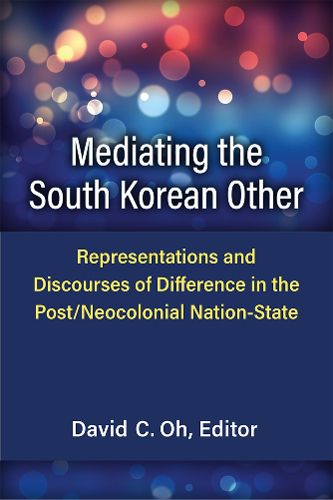Readings Newsletter
Become a Readings Member to make your shopping experience even easier.
Sign in or sign up for free!
You’re not far away from qualifying for FREE standard shipping within Australia
You’ve qualified for FREE standard shipping within Australia
The cart is loading…






Multiculturalism in Korea formed in the context of its neoliberal, global aspirations, its postcolonial legacy with Japan, and its subordinated neocolonial relationship with the United States. The Korean ethnoscape and mediascape produce a complex understanding of difference that cannot be easily reduced to racism or ethnocentrism. Indeed the Korean word, injongchabyeol, often translated as racism, refers to discrimination based on any kind of human category. Explaining Korea’s relationship to difference and its practices of othering, including in media culture, requires new language and nuance in English-language scholarship.
This collection brings together leading and emerging scholars of multiculturalism in Korean media culture to examine mediated constructions of the other, taking into account the nation’s postcolonial and neocolonial relationships and its mediated construction of self. Anthrocategorism , a more nuanced translation of injongchabyeol, is proffered as a new framework for understanding difference in ways that are locally meaningful in a society and media system in which racial or even ethnic differences are not the most salient. The collection points to the construction of racial others that elevates, tolerates, and incorporates difference; the construction of valued and devalued ethnic others, and the ambivalent construction of co-ethnic others as sympathetic victims or marginalized threats.
$9.00 standard shipping within Australia
FREE standard shipping within Australia for orders over $100.00
Express & International shipping calculated at checkout
Multiculturalism in Korea formed in the context of its neoliberal, global aspirations, its postcolonial legacy with Japan, and its subordinated neocolonial relationship with the United States. The Korean ethnoscape and mediascape produce a complex understanding of difference that cannot be easily reduced to racism or ethnocentrism. Indeed the Korean word, injongchabyeol, often translated as racism, refers to discrimination based on any kind of human category. Explaining Korea’s relationship to difference and its practices of othering, including in media culture, requires new language and nuance in English-language scholarship.
This collection brings together leading and emerging scholars of multiculturalism in Korean media culture to examine mediated constructions of the other, taking into account the nation’s postcolonial and neocolonial relationships and its mediated construction of self. Anthrocategorism , a more nuanced translation of injongchabyeol, is proffered as a new framework for understanding difference in ways that are locally meaningful in a society and media system in which racial or even ethnic differences are not the most salient. The collection points to the construction of racial others that elevates, tolerates, and incorporates difference; the construction of valued and devalued ethnic others, and the ambivalent construction of co-ethnic others as sympathetic victims or marginalized threats.